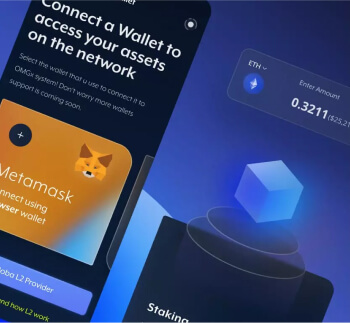Since the start of 2023, a month after OpenAI released ChatGPT, one of the most discussed topics in our society is, as the title of this article says, “AI will take your job”. So, let’s understand exactly what this means and how AI will come after your job.
“AI will take your job” is a bit misleading. It’s quite improbable that AI itself will take your job. Unless it will take over the world (and we won’t talk about that now), this has a very low chance of happening in the near future. So you might think, what is all this fuss about? The thing is, it’s not ChatGPT that will take your job, for example, it’s someone who knows how to use it better than you. And this will get fast amplified by the continuous chase for higher profits and the spiral effect generated by the outcome of that chase.
Let’s explain!
Let’s say you work in a company (let’s call it Company A) which is offering content creation services to its customers. There are 10 people working în your department. As we know, ChatGPT is very good at creating content, writing articles, explaining stuff and whatnot în this direction. Therefore, one person using ChatGPT can easily do the job of 3 people not using it, because it is much faster and more “instant-creative” than most of the people are.
Now, let’s assume 3 people în your department are using it and getting great results out of it. Your company now has a few options:
- Your company wants to maximise profits, but it’s happy with the number of clients it has, so it will terminate the positions occupied by those who are not so productive and get rid of those costs and all the issues which come from having 10 employees, instead of 3. This means it will be able to be the same productive as before, or even more, but with much lower costs. But it also means that ⅔ of the people will lose their jobs. This scenario will work for a limited time, because of the spiralling effect we’ll see in the next option.
- Your company will choose to keep all 10 of the employees and train them all on how to use ChatGPT so they all can become much more productive. But this means your company will become extremely productive and it will search to increase its portfolio of clients. In a competitive market, the best way to do that is either by lowering prices (now it can afford) or bundle extra benefits, more than the competition. If this will succeed, your company will gain new customers from companies B and C. Faced with this fact, companies B and C will either have to follow the same strategy and lower their prices as well or they will be forced to fire some of their employees, since there won’t be enough work for everyone. If they will implement the same strategy and train all their employees to use ChatGPT, we’ll end up with three highly productive companies which will fight for the same pool of clients (not to mention that some of those clients, after seeing themselves how easy using ChatGPT is, might decide to do their work internally). Either way, because all three companies are highly productive and the need to maximise profits (from option 1) will always exist, they will eventually decide to cut some jobs în order to maintain or increase their profitability.
- Your company decides to do nothing about it, which will dramatically increase its chances of losing all its customers to the competition. Fact which, undoubtedly, will mean that all its 10 employees will lose their jobs.
Either way company A chooses, either option it takes, some of your colleagues will eventually lose their job. And this is what “AI will take your job” actually means. The run for profits is unavoidable (that’s what a company’s purpose is, in the first place), the spiral effect is the same unavoidable (just look at what happened since OpenAI released ChatGPT, all the companies and individuals involved in the sector are rushing to keep up with the pace somehow).
So, if we put one and one together, we can see it’s inevitable that some people will lose their jobs. From that, because the remaining work places will be occupied by highly productive people equipped with the necessary skills to “operate” the AI, the places where the people will be able to work will become less and less. Which means, even if you would want to get a job, you won’t be able to find it. Imagine you’re a graduate finishing school în the very near future, how must that feel.
There is always the option to retrain all those people replaced by automation and give them a new purpose, but, as we’ll explain in a future article, this will be an extremely difficult process.
So what can you do if you’re în danger of being replaced? Check out our Help page!








